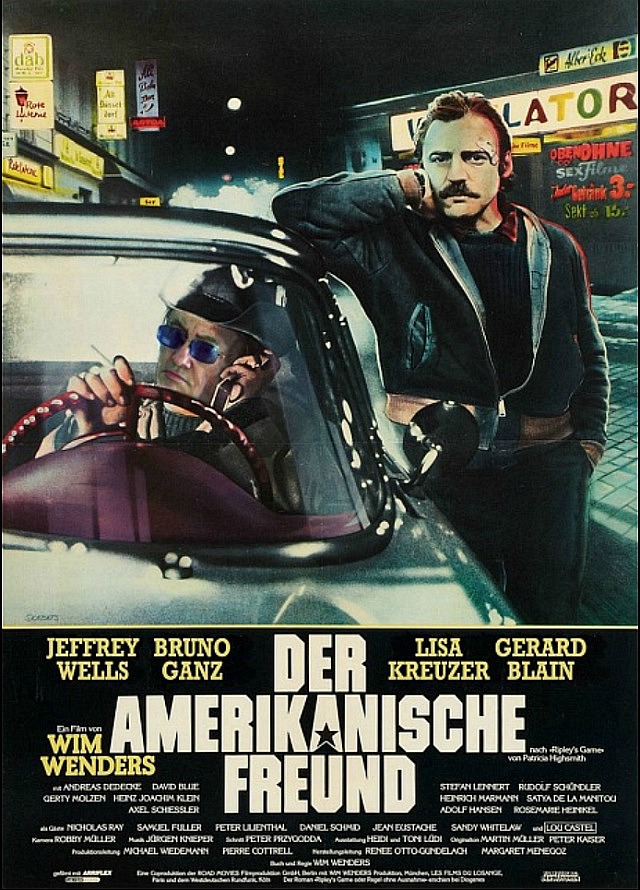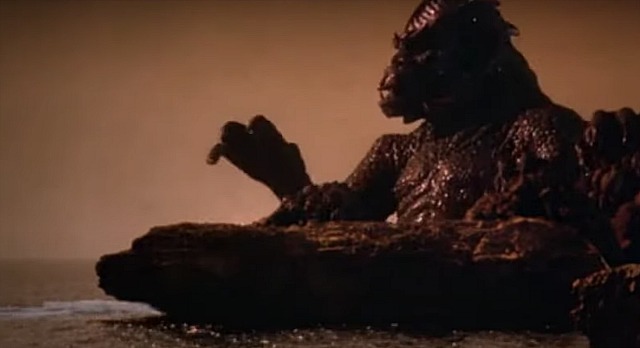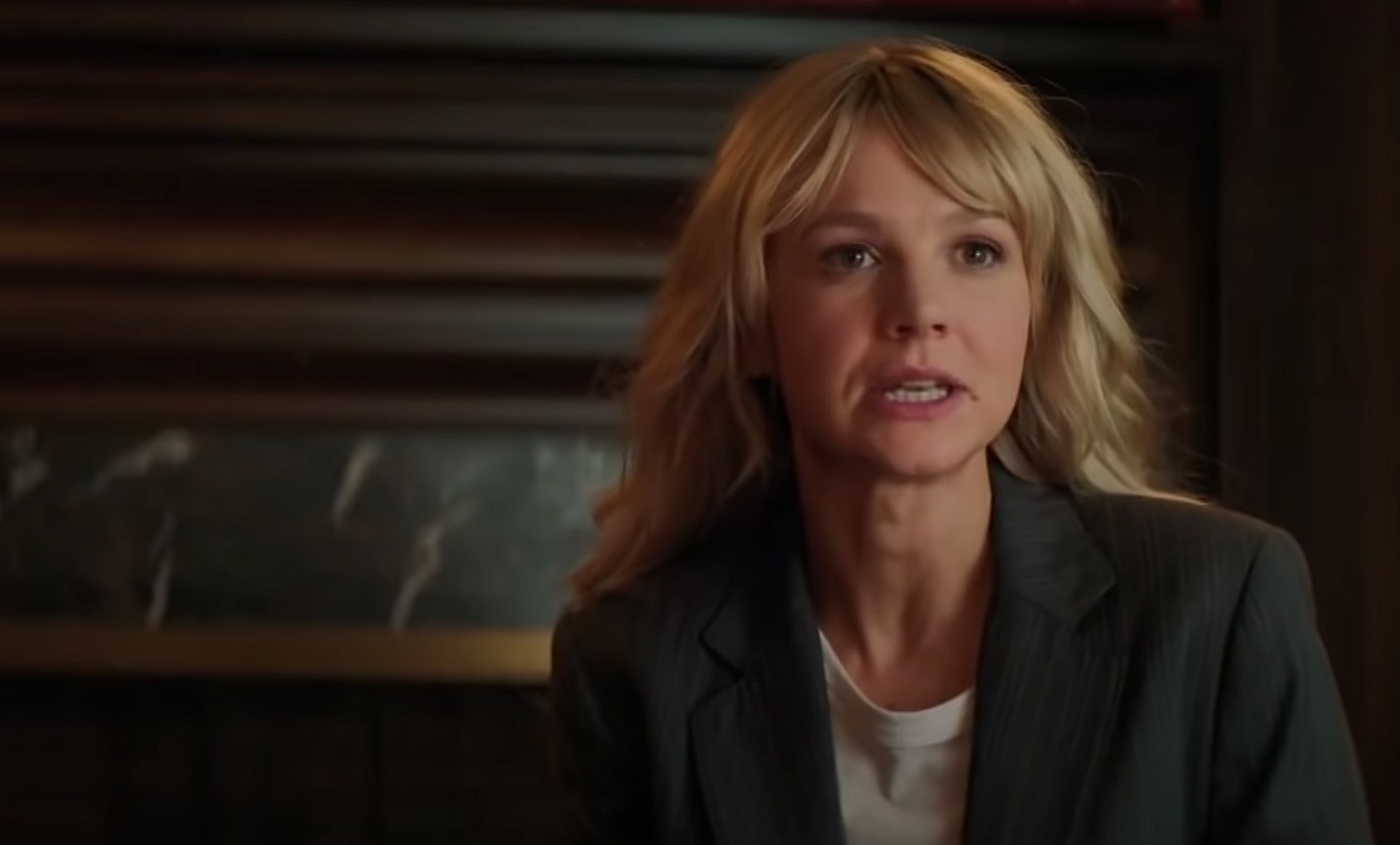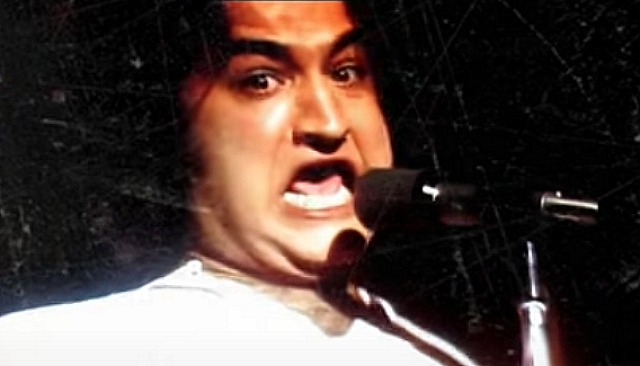People like Steven Gaydos will groan and slap their foreheads and say “give it a rest already!” But 40 or 50 years from now college students will ask their sociology professors what it was like to live through woke terrorism, and for starters the profs will send them this URL and say “watch this…this is what it was like.”
Another One
Four days ago I noted that Bryce Dallas Howard had created an alternate Facebook avatar by the name of Bry Dearing. Now Jennifer Lawrence (aka “JLaw“) has created her own — i.e., Jen Maroney of Indian Hills, Kentucky (where Lawrence is from), self-described as a “professional pizza slayer.”
Posted on 11.18: “Is this a thing or a put-on…? Creating a substitute Facebook identity by way of an alternate name but still using your regular photos? I don’t know what this actually is, but it seems to be about splitting a social-media identity into two halves — the real-deal organic self with an actual history, and a recently created alternate mirror self that exists only as a reflection. Or something like that.”
“Release The Kraken”
By the visual effects standards of 1980 and ’81 and certainly compared to the razzle-dazzle of The Empire Strikes Back, Desmond Davis, Ray Harryhausen and Charles H. Schneer‘s Clash of the Titans (’81) was fairly groan-worthy. And yet it wasn’t murdered by critics and it turned a pretty good profit. Made for $15 million, earned over $70 million worldwide.
But what about the facial reactions of Judi Bowker (as Princess Andromeda) as she contemplates the Kraken while chained to a seaside cliff like Fay Wray in King Kong? Overreacting can be just as bad if not worse than under-acting, but Bowker could be hailing a cab on 57th Street.
Costarring Harry Hamlin, Laurence Olivier, Maggie Smith, Burgess Meredith and Ursula Andress — paycheck whores, the lot of them.
“Promising” Surprise
HE to Friendo after seeing Promising Young Woman (Focus Features, 12.25): “This is a really well-made film…carefully honed, brittle attitude, super-dry dialogue, well shot…Carey Mulligan’s Cassie is shut down and seemingly ‘over’ from the get-go…burning rage, nihilism, chilly and icy but highly controlled. The film itself is that way…ice cubes, deliberate glacier-hood, calculating.
“It’s been described as a kind of #MeToo Death Wish thing, but it’s a much finer creation than Michael Winner’s 1974 film. And yet God, the ice water in its veins! So angry at chauvinist prick fuckheads that it can’t…well, it can see straight but it can’t cut anyone a break. The evil parties must pay and die, and the feeling of vengeance and wrath is such that it just HAS to splash over and soak Carey’s character…I’ll leave it at that.
“Director-writer Emerald Fennell’s decision to make Ryan, the ostensible nice guy pediatrician boyfriend (Bo Burnham, the director-writer of Eighth Grade)…the guy is suddenly presented as…uhm, flawed. And this character decision is REALLY ICE COLD. Bold and brave on Fennell’s part but colder than shit. For we’ve been led to believe that Ryan is the one nice guy — the totem that says ‘there are some decent guys out there…they’re not all pigs and fiends.’
“And yet one mark of exceptional artistic achievement is not being afraid to go all the way. PYW definitely goes for broke and then some. It doesn’t just despise the young male tribe of insensitive assholes out there — it wants them exterminated like insects.
“In a sense, PYW is lucky it’s coming out during the pandemic because it would die a VERY quick death in theatres.
“THAT SAID, it certainly has the unflinching courage of its convictions. It does not lose its nerve. And so it stays with you. But aside from #MeToo hardcores and critics with the ability or willingness to step back and respect it for refusing to back off, who is going to recommend or earnestly praise this thing?
“For me, the last film that had this much of an icy attitude was Neil Labute’s In The Company of Men. Another in this vein is Michel Franco’s New Order. A similar feeling of ruthless payback and punishment. PYW isn’t the least bit political while New Order is very much that, but they share a certain hard clarity or severity of mind.”
“Belushi” Time
I saw R.J. Cutler‘s Belushi doc last night, right after watching Emerald Fennell‘s Promising Young Woman. After that exacting but frigid experience I was looking for a little warmth and humanity, and Belushi shared what it had of that. It relaxed me to a certain extent. A feeling of security, comfort, bon ami, even joy. An easy sit. Right away I was muttering “this is good.”
So I’m glad for the 108 minutes that I spent with it. It turns out John was something of a romantic softie at heart, at least as far as letters to his longtime squeeze and eventual wife Judy (i.e., Judith Belushi-Pisano) were concerned. Deep down he was a modest, middle-class guy who was terrified that the world would eventually discover that he was only a rambunctious sketch comedian and that he didn’t have that much to bring to the table.
The doc has four chapters; the first three are worth the price.
Chapter 1 covers the childhood and high-school period in Wheaton, Illinois. (Belushi’s dad was Albanian, and was basically the inspiration for the “cheeseburger cheeseburger” diner sketch.) Chapter 2 and 3 explore the bound-for-glory period between the early to mid ’70s — from the time he joined Chicago’s Second City, and then National Lampoon’s Lemmings and then became a writer, director and actor for The National Lampoon Radio Hour. And then his first three and a half years with SNL (starting in ‘mid 75) and cresting with his breakout performance in National Lampoon’s Animal House.
And then the manic cocaine craziness takes over and it’s down, down, down…the disaster of 1941, the unfunny, slam-bang excess of The Blues Brothers, the brief resurgence of Continental Divide, the disappointment of Neighbors and then his Chateau Marmont speedball death in March ’82, at age 33.
I caught a very early screening of 1941 at Universal’s Manhattan screening room. It must have been in mid November ’79. When it was over I was saying to a friend who’d come with me, “It’s over…Belushi’s big ride is over….this is a major failure all around.” I read a year or two later that Michael O’Donoghue had created a white-type-on-black-background button that read “JOHN BELUSHI — born 1949 — died 1941.”
I saw Belushi live twice. Once at a Blues Brothers concert at Carnegie Hall (10.11.78), and then at an all-media screening of Raiders of the Lost Ark at Leows’ State, which happened sometime around 6.1.81. Belushi and Dan Aykroyd were there together, in fact — they were shooting Neighbors at the time, and Aykroyd’s hair had been dyed light blonde. I can’t recall if Belushi’s hair was partly gray, as it is in the John Avildsen film, but probably.
Belushi, who stood around 5’8″, was right in front of me as we slowly shuffled out of the theatre. He offered a one-word review of the film: “Yeaaahhh.”
It breaks my heart that you still can’t find a high-quality online capture of Belushi’s Joe Cocker impressions on Saturday Night Live. Or at least that one side-by-side performance (Cocker + Belushi] of “Feelin’ All Right” in ’76. There’s a cruddy tape of a Lemmings performance in which Belushi performs “A Little Help From My Friends” [after the jump].
Saturday Binge
Less posting than usual today because I’m trying to watch three in a row — (1) Alexander Nanau‘s Collective, (2) Emerald Fennell‘s Promising Young Woman (Focus Features, 12.25) with Carey Mulligan, and (3) R.J. Cutler‘s Belushi, which premieres tomorrow night on Showtime.
Son of Friendly Fire
Originally posted on 9.4.15: I’ve been debating whether or not to reveal an embarassing thing that happened in the late ’80s, and I realized this morning that I need to just flush it out. Always a good thing to expose disturbing, uncomfortable memories. So here goes.
I took part in a paintball game when I was working at Cannon Films in the summer of ’87. I had suggested some bold, George S. Patton-type strategies to my fellow warriors, but when you actually get out there with your paintball gun in that sticky and sweltering Los Angeles heat and you’re dealing with dust and sweat and the sobering fact that you’re not exactly Steve McQueen in Hell Is For Heroes, things are a little different. The Cannon team lost that day, and I was one of the reasons.
I’m just going to spit this out. We were losing and I was in a bad position, surrounded by the opposing team and anxious and furious that we were getting clobbered, and in my haste and rage I saw someone appear in the corner of my left eye and I whipped around and fired. I shot one of our own guys. Actually it was a woman. I got her in the arm…thwack! She let go with a loud and angry “aaggh!” She was expressing two things: (1) “That hurts!” and (2) “You just shot someone on your team…asshole!”
Guilty Confession
My first viewing of Wim Wenders‘ The American Friend was at the 1977 New York Film Festival, or sometime in late September of that year. Simultaneously bleak and haunting, a moody European noir, wry and cool and even sexy at times, it connects you with every existential dark-night-of-the-soul phase you’ve ever tasted first-hand in your actual life.
The late, great Bruno Ganz (with whom I felt an instant rapport during an ’04 Downfall junket interview) and Dennis Hopper gave the most iconic performance of their careers, and Robby Muller‘s chilling but wonderfully eerie cinematography…forget about it. And composed, of course, in HE’s all-time favorite aspect ratio of 1.66:1.
Several hours ago I discovered that a certain someone in our home (possibly myself) had accidentally turned on the Sony 4K’s Motion Flow viewing option, which we all understand is a huge aesthetic no-no. I realized this as I began watching The American Friend last night, not off my cherished Criterion Bluray but via HBOMax streaming.

Now the tough part: The motion-flowing of Muller’s cinematography (i.e., frame interpolation or black frame insertion) made it look extra-delicious. Sharper, cleaner, more luscious and immediate with those vaguely video-like (but mostly film-like) textures — I couldn’t get over how my love for this ace-level classic seemed to have been completely renewed.
I’m a bad person, I’m a bad person, I’m a bad person, etc.
HE to self: “This isn’t what Muller and Wenders prepared and approved. It’s a gussied-up distortion so how could you even think that it looks good on some level, whatever that level might be? Ask David Fear or Eric Kohn or any scholastically correct film critic in the country, and they’ll condemn motion smoothing to a man.”
Let me be clear that conceptually HE condemns motion-smoothing without the slightest equivocation. It’s not how films should be seen.
Except, that is, for the awkward fact that I half-loved watching the smoothed-out Friend. Not in a historical, politically attuned, get-with the program sense, but on a deep down, kid-in-a-candy-store level. God forgive me, God help me, beat me with sticks, etc.
Great Writing Procrastination Story
There’s nothing quite as awful as ignoring a deadline or telling yourself it’s nothing to really worry about. Because it always is. And yet you can’t seem to get going…putting it off, putting it off. It’s a terrible place to be stuck in…a crippling psychological condition. The guilty, nose-to-the-grindstone part of you is panicking more and more, and the lazy part is saying “yeah, I know we have to do this but I wanna wait just a little bit longer.”
Shredded Metal, Stitches, Crutches
Before seeing David Cronenberg‘s Crash (’96) I’d never heard the term symphorophilia, an alleged condition in which sexual arousal results from staging or watching a tragedy, such as a fire or a traffic accident.
In the 24 years since I first laid eyes on this cold, strange, perverse film (and I’ve only seen it once) I’ve never once spoken or written or even joked about the term because no one in the real recognizable world is a symphorophiliac. Because it’s a ridiculous fucking affliction…make that absurd.
And yet Cronenberg’s Crash (which was made when James Spader was slender and had wavy blonde hair) is commonly regarded as a far more interesting and artistically accomplished effort that the other Crash — i.e., the one directed by Paul Haggis, and a winner of three Academy Awards including Best Picture.
A Criterion Bluray version pops on 12.1.20, or about ten days hence.





